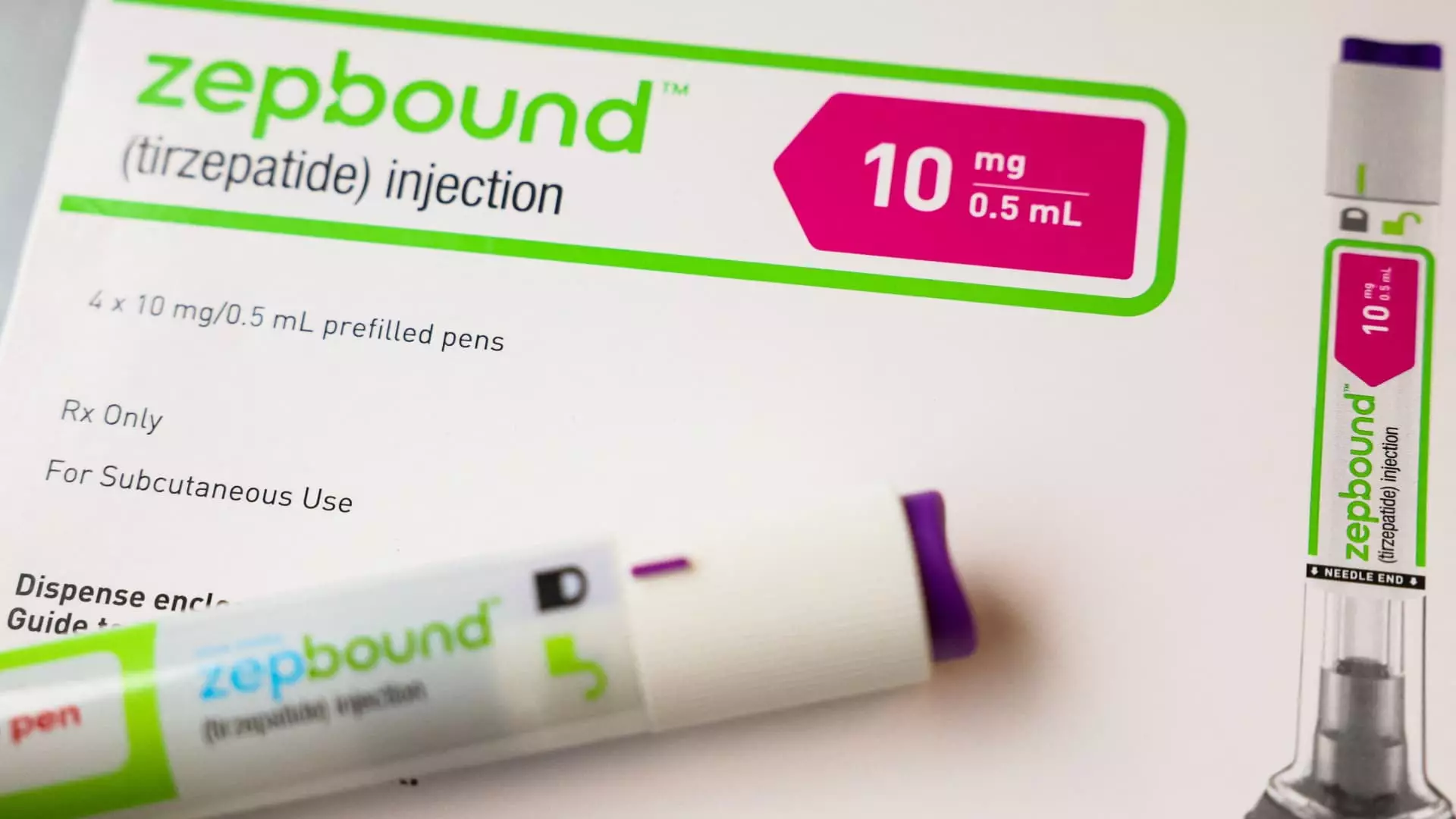The weight loss industry has undergone a significant transformation in recent years, thanks to groundbreaking pharmaceuticals. Eli Lilly’s Zepbound, a novel weight management injection, has captured attention due to its potential effectiveness. However, affordability and accessibility remain paramount concerns for many potential users, especially in the context of healthcare structures like Medicare that often do not cover such treatments. In a proactive move, Eli Lilly has recently announced a strategic reduction in prices and a new distribution format for Zepbound, aiming to reshape the access landscape for patients lacking insurance coverage.
On a Tuesday announcement, Eli Lilly made waves by unveiling that higher doses of Zepbound would be available in single-dose vials at a significantly reduced price—up to 50% lower than the standard monthly rate. This initiative appears to target a broad spectrum of patients, particularly those enrolled in Medicare, who are often left stranded by conventional insurance policies that typically do not cover weight management treatments. By offering these vials through their direct-to-consumer platform, LillyDirect, the company aims to expand access to a medication that many people desperately need but cannot afford at full price.
With options like the 7.5 mg and 10 mg vials priced at $499 and $599 respectively, Eli Lilly is leveling the playing field for uninsured patients, making Zepbound more attainable for individuals diagnosed with obesity and other related conditions. Previously, the price of the drug, often above the budget of an average patient, pushed many toward cheaper but less reliable alternatives from compounding pharmacies.
Moving Towards More User-Friendly Options
One of the significant changes introduced is the provision of Zepbound in single-dose vials, which, while requiring patients to use syringes for self-injection, reflects an effort to streamline production and distribution. The shift towards vials is also beneficial from a manufacturing perspective, as they can be produced more efficiently than autoinjector pens. Notably, the existing autoinjector form—the most common method of administration—prices at around $1,000 before any insurance intervention, making it far less accessible for average consumers.
While the self-injection method introduces a slight inconvenience for patients, it also embodies a push towards lower costs and improved supply stability for Zepbound. Eli Lilly’s foresight in this area is commendable, as the company aims to produce a reliable product that can meet the growing demand without compromising quality.
Tackling Competition from Compounded Versions
Despite gaining regulatory approval and acclaim, Zepbound has faced an interesting challenge from compounded versions of the drug. Patients seeking cost-effective alternatives were turning to compounding pharmacies, which created replicas of Zepbound, leading to concerns about quality and safety. With the FDA declaring the Zepbound shortage over, Eli Lilly is seeking to discourage reliance on these knock-off medications by ensuring a reliable supply of its own product through affordable options.
Eli Lilly is not aiming to undercut these compounding alternatives; rather, they are promoting the safety and effectiveness of their product, which has undergone rigorous testing and approval processes. This move not only restores confidence among consumers but also underscores Eli Lilly’s commitment to patient safety by emphasizing that counterfeit medications may not meet the high standards for efficacy and safety expected by consumers.
Eli Lilly’s marketing efforts have also evolved with the launch of LillyDirect, a platform that connects patients with independent telehealth services capable of prescribing Zepbound, navigating the complexities of treatment accessibility in the modern healthcare landscape. The platform further enhances patient convenience through home delivery options, significantly facilitating the entire treatment process.
As Eli Lilly ventures into this uncharted territory, they are likely keeping a close eye on consumer uptake of the new vials. Although still a small fraction of the overall obesity market, the early indications suggest a positive response. The company recognizes the potential for a major shift in how obesity medications are perceived and accessed if they can secure a foothold in this increasingly competitive market.
As regulatory frameworks evolve and healthcare policies adapt, the upcoming years may determine the landscape of obesity treatment in the United States. Eli Lilly’s recent initiatives appear to respond aptly to the pressing need for affordable options, particularly within underserved populations like Medicare beneficiaries. Their approach integrates improved accessibility, competitive pricing, and uncompromised safety standards, positioning Zepbound as a viable solution amidst tightening medical budgets and evolving consumer expectations.
With stakeholders urging for expanded insurance coverage for obesity medications, Eli Lilly’s operational pivot could serve as a model for similar companies in the industry, embodying a shift towards accessible, health-centric pharmaceutical marketing. This could potentially usher in a new era where the stigma surrounding weight loss treatments diminishes, allowing broader acceptance of such critical health interventions in mainstream healthcare.

